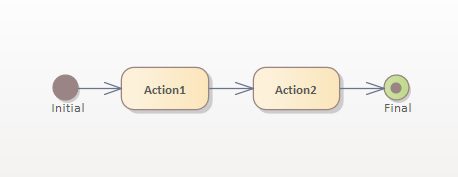| SET APPI[NFO]{ON | OFF | text} | Sets automatic registering of scripts through the DBMS_APPLICATION_INFO package. |
| SET ARRAY[SIZE] {15 | n} | Sets the number of rows, called a batch, that SQL*Plus will fetch from the database at one time. |
| SET AUTO[COMMIT]{ON | OFF | IMM[EDIATE] | n} | Controls when Oracle Database commits pending changes to the database. |
| SET AUTOP[RINT] {ON | OFF} | Sets the automatic printing of bind variables. |
| SET AUTORECOVERY [ON | OFF] | ON sets the RECOVER command to automatically apply the default filenames of archived redo log files needed during recovery. |
| SET AUTOT[RACE] {ON | OFF | TRACE[ONLY]} [EXP[LAIN]] [STAT[ISTICS]] | Displays a report on the execution of successful SQL DML statements (SELECT, INSERT, UPDATE, DELETE or MERGE). |
| SET BLO[CKTERMINATOR] {. | c | ON | OFF} | Sets the non-alphanumeric character used to end PL/SQL blocks to c. |
| SET CMDS[EP] {; | c | ON | OFF} | Sets the non-alphanumeric character used to separate multiple SQL*Plus commands entered on one line to c. |
| SET COLSEP { | text} | Sets the text to be printed between selected columns. |
| SET CON[CAT] {. | c | ON | OFF} | Sets the character you can use to terminate a substitution variable reference if you wish to immediately follow the variable with a character that SQL*Plus would otherwise interpret as a part of the substitution variable name. |
| SET COPYC[OMMIT] {0 | n} | Controls the number of batches after which the COPY command commits changes to the database. |
| SET COPYTYPECHECK {ON | OFF} | Sets the suppression of the comparison of datatypes while inserting or appending to tables with the COPY command. |
| SET DEF[INE] {& | c | ON | OFF} | Sets the character used to prefix variables to c. |
| SET DESCRIBE [DEPTH {1 | n | ALL}] [LINENUM {ON | OFF}] [INDENT {ON | OFF}] | Sets the depth of the level to which you can recursively describe an object. |
| SET ECHO {ON | OFF} | Controls whether the START command lists each command in a script as the command is executed. |
| SET EDITF[ILE] file_name[.ext] | Sets the default filename for the EDIT command. |
| SET EMB[EDDED] {ON | OFF} | Controls where on a page each report begins. |
| SET ERRORL[OGGING] {ON | OFF} [TABLE [schema.]tablename] [TRUNCATE] [IDENTIFIER identifier] | Enables recording of SQL, PL/SQL and SQL*Plus errors to an error log table which you can query later. |
| SET ESC[APE] {\ | c | ON | OFF} | Defines the character you enter as the escape character. |
| SET ESCCHAR {@ | ? | % | $ | OFF} | Specifies a special character to escape in a filename. Prevents character translation causing an error. |
| SET EXITC[OMMIT] {ON | OFF} | Specifies whether the default EXIT behavior is COMMIT or ROLLBACK. |
| SET FEED[BACK] {6 | n | ON | OFF} | Displays the number of records returned by a query when a query selects at least n records. |
| SET FLAGGER {OFF | ENTRY | INTERMED[IATE] | FULL} | Checks to make sure that SQL statements conform to the ANSI/ISO SQL92 standard. |
| SET FLU[SH] {ON | OFF} | Controls when output is sent to the user’s display device. |
| SET HEA[DING] {ON | OFF} | Controls printing of column headings in reports. |
| SET HEADS[EP] { | c | ON | OFF} | Defines the character you enter as the heading separator character. |
| SET INSTANCE [instance_path | LOCAL] | Changes the default instance for your session to the specified instance path. |
| SET LIN[ESIZE] {80 | n} | Sets the total number of characters that SQL*Plus displays on one line before beginning a new line. |
| SET LOBOF[FSET] {1 | n} | Sets the starting position from which BLOB, BFILE, CLOB and NCLOB data is retrieved and displayed. |
| SET LOGSOURCE [pathname] | Specifies the location from which archive logs are retrieved during recovery. |
| SET LONG {80 | n} | Sets maximum width (in bytes) for displaying LONG, BLOB, BFILE, CLOB, NCLOB and XMLType values; and for copying LONG values. |
| SET LONGC[HUNKSIZE] {80 | n} | Sets the size (in bytes) of the increments in which SQL*Plus retrieves a LONG, BLOB, BFILE, CLOB, NCLOB or XMLType value. |
| SET MARK[UP] HTML [ON | OFF] [HEAD text] [BODY text] [TABLE text] [ENTMAP {ON | OFF}] [SPOOL {ON | OFF}] [PRE[FORMAT] {ON | OFF}] | Outputs HTML marked up text. |
| SET NEWP[AGE] {1 | n | NONE} | Sets the number of blank lines to be printed from the top of each page to the top title. |
| SET NULL text | Sets the text that represents a null value in the result of a SQL SELECT command. |
| SET NUMF[ORMAT] format | Sets the default format for displaying numbers. |
| SET NUM[WIDTH] {10 | n} | Sets the default width for displaying numbers. |
| SET PAGES[IZE] {14 | n} | Sets the number of lines in each page. |
| SET PAU[SE] {ON | OFF | text} | Enables you to control scrolling of your terminal when running reports. |
| SET RECSEP {WR[APPED] | EA[CH] | OFF} | RECSEP tells SQL*Plus where to make the record separation. |
| SET RECSEPCHAR { | c} | Display or print record separators. |
| SET SERVEROUT[PUT] {ON | OFF} [SIZE {n | UNL[IMITED]}] [FOR[MAT] {WRA[PPED] | WOR[D_WRAPPED] | TRU[NCATED]}] | Controls whether to display the output (that is, DBMS_OUTPUT PUT_LINE) of stored procedures or PL/SQL blocks in SQL*Plus. |
| SET SHIFT[INOUT] {VIS[IBLE] | INV[ISIBLE]} | Enables correct alignment for terminals that display shift characters. |
| SET SHOW[MODE] {ON | OFF} | Controls whether SQL*Plus lists the old and new settings of a SQL*Plus system variable when you change the setting with SET. |
| SET SQLBL[ANKLINES] {ON | OFF} | Controls whether SQL*Plus puts blank lines within a SQL command or script. |
| SET SQLC[ASE] {MIX[ED] | LO[WER] | UP[PER]} | Converts the case of SQL commands and PL/SQL blocks just prior to execution. |
| SET SQLCO[NTINUE] {> | text} | Sets the character sequence SQL*Plus displays as a prompt after you continue a SQL*Plus command on an additional line using a hyphen (–). |
| SET SQLN[UMBER] {ON | OFF} | Sets the prompt for the second and subsequent lines of a SQL command or PL/SQL block. |
| SET SQLPLUSCOMPAT[IBILITY] {x.y[.z]} | Sets the behavior or output format of VARIABLE to that of the release or version specified by x.y[.z]. |
| SET SQLPRE[FIX] {# | c} | Sets the SQL*Plus prefix character. |
| SET SQLP[ROMPT] {SQL> | text} | Sets the SQL*Plus command prompt. |
| SET SQLT[ERMINATOR] {; | c | ON | OFF} | Sets the character used to end and execute SQL commands to c. |
| SET SUF[FIX] {SQL | text} | Sets the default file that SQL*Plus uses in commands that refer to scripts. |
| SET TAB {ON | OFF} | Determines how SQL*Plus formats white space in terminal output. |
| SET TERM[OUT] {ON | OFF} | Controls the display of output generated by commands executed from a script. |
| SET TI[ME] {ON | OFF} | Controls the display of the current time. |
| SET TIMI[NG] {ON | OFF} | Controls the display of timing statistics. |
| SET TRIM[OUT] {ON | OFF} | Determines whether SQL*Plus puts trailing blanks at the end of each displayed line. |
| SET TRIMS[POOL] {ON | OFF} | Determines whether SQL*Plus puts trailing blanks at the end of each spooled line. |
| SET UND[ERLINE] {- | c | ON | OFF} | Sets the character used to underline column headings in SQL*Plus reports to c. |
| SET VER[IFY] {ON | OFF} | Controls whether SQL*Plus lists the text of a SQL statement or PL/SQL command before and after SQL*Plus replaces substitution variables with values. |
| SET WRA[P] {ON | OFF} | Controls whether SQL*Plus truncates the display of a SELECTed row if it is too long for the current line width. |
| SET XMLOPT[IMIZATIONCHECK] [ON|OFF] | Specifies that only fully optimized XML queries and DML operations are executed. Only to assist in developing and debugging, not for production. |
| SET XQUERY BASEURI {text} | Defines the base URI to use. This is useful to change the prefix of the file to access when writing generic XQuery expressions. |
| SET XQUERY ORDERING {UNORDERED | ORDERED | DEFAULT} | Controls the ordering of results from an XQuery. |
| SET XQUERY NODE {BYVALUE | BYREFERENCE | DEFAULT} | Sets the preservation mode for notes created or returned. |
| SET XQUERY CONTEXT {text} | Specifies an XQuery context item which can be either a node or a value. |




